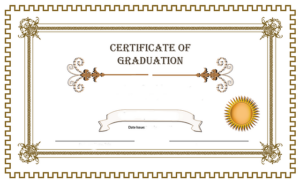Mastering UK Abstract Guidelines: Strategies for Effective Scientific Communication
TL;DR:The UK scientific community highly values clear, well-structured abstracts (200-300 words) for conference presentations. Translation services are essential to meet local standards, ensure accuracy, and maintain research integrity, especially fo…….

TL;DR:
The UK scientific community highly values clear, well-structured abstracts (200-300 words) for conference presentations. Translation services are essential to meet local standards, ensure accuracy, and maintain research integrity, especially for non-native English speakers. These services help convey key objectives, methods, findings, significance, and keywords effectively, enhancing discoverability and accessibility.
Adhering to strict word limits and ethical guidelines is crucial. Translation aids in navigating these requirements while preserving scientific integrity. It facilitates collaboration by bridging linguistic gaps and ensuring diverse audiences can understand and appreciate UK research contributions. Professional services offer proofreading, editing, cultural sensitivity, and formatting for high-quality abstracts suitable for submission to UK conferences.
“Ensure your abstracts meet UK scientific guidelines with our comprehensive guide. Understanding the nuances of abstract requirements for UK conferences can be daunting. From clarity and conciseness to ethical considerations and language precision, this article breaks down key elements for compliance. Learn effective strategies for summarization, methodology presentation, and proofreading. Discover the benefits of professional translation services tailored for UK scientific conference abstracts, enhancing your chances of successful submission.”
- Understanding UK Scientific Conference Abstract Requirements
- Key Elements of a Compliant Abstract: A Breakdown
- The Role of Clarity and Conciseness in Abstract Writing
- Adhering to Word Limits: Strategies for Effective Summarization
- Incorporating Methodologies and Results Effectively
- Ensuring Ethical Considerations in Abstract Preparation
- The Importance of Language Precision and Accuracy
- Proofreading and Editing Tips for Conference Abstracts
- Benefits of Professional Translation Services for UK Scientific Abstracts
Understanding UK Scientific Conference Abstract Requirements

The UK scientific community places a high emphasis on clear, concise, and well-structured abstracts for conference presentations. These abstracts serve as a snapshot of the research, highlighting its key aspects to attract readers and encourage further exploration. Understanding and adhering to these guidelines is essential when preparing your abstract for submission to any UK scientific conference. One critical aspect is ensuring that your abstract is written in plain English, making it accessible to a diverse audience of peers and experts from various linguistic backgrounds. This is where translation services play a vital role, especially for those not native to the UK or whose first language is not English.
Translation services for UK Scientific Conference Abstracts provide a means to refine your content, ensuring it meets the local standards while maintaining scientific accuracy. These services are designed to capture the essence of your research, conveying complex ideas succinctly and accurately. By availing of professional translation, you can present your abstract with confidence, knowing it aligns perfectly with the UK scientific community’s expectations.
Key Elements of a Compliant Abstract: A Breakdown

When crafting a UK scientific conference abstract, adhering to the guidelines set by the host institution or journal is paramount. A compliant abstract typically encompasses several key elements that effectively convey research findings and significance. These include:
1. A Clear Objective: This succinctly states the primary aim or question addressed in the study, setting the stage for the reader to understand the context and purpose of the work. It’s often the first thing reviewers and attendees read, so making it compelling and concise is crucial.
2. Methods and Procedures: A brief description of the methodology used, including any unique approaches or adaptations, ensures transparency. This allows peers to assess the validity and reproducibility of your research.
3. Key Findings and Results: Summarizing the main outcomes, whether positive or negative, helps attendees gauge the impact and importance of your work. Highlighting statistical significance or notable trends can enhance the abstract’s scientific value.
4. Significance Statement: This paragraph connects the research to existing knowledge, explaining why it matters. It should articulate how the findings contribute to the field, identify gaps filled, or suggest future directions.
5. Keywords/Subject Headings: Selecting relevant keywords aids in indexing and retrieval, making your abstract discoverable by those most likely to be interested in your topic. Translation services for UK scientific conference abstracts can help ensure these are accurately represented for a wider audience.
The Role of Clarity and Conciseness in Abstract Writing

In the realm of scientific communication, clarity and conciseness are paramount, especially in the abstract—a critical component of any research paper or conference submission. The abstract serves as a gateway, offering a snapshot of the entire study for potential readers who may have limited time or specific interests. Therefore, crafting a well-structured abstract is an art that involves condensing complex scientific ideas into a concise yet informative text.
For those seeking to present their research at UK conferences, understanding these guidelines is essential. Translation services designed specifically for scientific abstracts play a vital role in ensuring accuracy and compliance with local standards. These services help researchers convey their work’s significance and impact, fostering meaningful scientific discourse. By adhering to the principles of clarity and conciseness, scientists can effectively communicate their research goals, methodologies, and outcomes, making their abstracts not just compliant but also impactful, thereby enhancing their chances of success in the competitive UK scientific landscape.
Adhering to Word Limits: Strategies for Effective Summarization

Abstracts are a crucial component of scientific communication, and adhering to word limits is an essential part of crafting a compelling summary. When preparing abstracts for UK scientific conferences, it’s vital to keep in mind the specific guidelines regarding character or word counts. These restrictions are in place to ensure that abstracts provide concise yet comprehensive overviews of research, enabling efficient navigation and decision-making by reviewers and attendees.
Translation services play a significant role here, especially for international researchers. Professional translation can help navigate these word limits while ensuring the abstract maintains its scientific integrity. By leveraging translation expertise, researchers can effectively summarize their work, making it accessible to a broader audience and enhancing the overall quality of submissions for UK scientific conferences.
Incorporating Methodologies and Results Effectively

When crafting abstracts for UK scientific conferences, effectively incorporating methodologies and results is paramount. This involves concisely summarizing your research methods while highlighting key findings. The abstract should provide a clear picture of your study design, participant selection (if applicable), data collection techniques, and analysis approaches. It’s crucial to balance detail and brevity, ensuring that each sentence contributes to the overall narrative without overwhelming readers.
Translation services for UK Scientific Conference Abstracts play a vital role in this process. They help ensure that your abstract is not only compliant with guidelines but also accessible to a diverse audience. Accurate translation ensures that your scientific contributions are accurately represented, fostering meaningful collaboration and insight within the UK research community.
Ensuring Ethical Considerations in Abstract Preparation

When preparing abstracts for UK scientific conferences, it’s crucial to adhere to ethical standards and guidelines. This involves ensuring that all data presented is original, accurate, and responsibly sourced. Plagiarism checks should be conducted prior to submission to maintain academic integrity. Moreover, sensitive information about participants or patients must be anonymised or aggregated to protect privacy rights.
Translation services can play a vital role for non-native English speakers. Professional translation ensures that abstracts are clear, precise, and culturally appropriate for the UK audience. Accurate translations not only facilitate understanding but also boost the chance of abstract acceptance and presentation success at scientific conferences.
The Importance of Language Precision and Accuracy

In the realm of scientific communication, language precision and accuracy are paramount. When crafting abstracts intended for presentation at UK scientific conferences, adhering to stringent guidelines is essential. A clear, concise, and error-free abstract ensures that researchers from diverse linguistic backgrounds can readily comprehend the study’s objectives, methodologies, and outcomes.
Translation services play a pivotal role in ensuring these abstracts meet UK standards. Professional translation ensures that academic ideas are conveyed accurately, preserving the integrity of the research while making it accessible to a broader audience. This is particularly crucial for international researchers whose first language may differ from English, enabling effective communication and fostering collaboration within the scientific community.
Proofreading and Editing Tips for Conference Abstracts

When preparing your conference abstract for submission, ensuring it meets UK scientific guidelines is essential. One critical step often overlooked is thorough proofreading and editing. This process goes beyond simple grammar checks; it involves a nuanced understanding of the specific requirements for UK scientific conferences. For instance, many UK conferences prefer concise writing styles, emphasizing key findings over extensive detail. Therefore, your abstract should be tightly written, highlighting the significance of your research and its impact.
Consider engaging translation services if your native language is not English to guarantee accuracy in expression. Professional translators can refine your abstract, ensuring it adheres to the conference’s standards while conveying your scientific ideas clearly. They can also help avoid cultural nuances that might be overlooked by non-native speakers, thereby enhancing the overall quality of your submission. Additionally, proofreading services can catch typographical errors, formatting inconsistencies, and even suggest improvements for better readability and flow.
Benefits of Professional Translation Services for UK Scientific Abstracts

Professional translation services play a vital role in ensuring that UK scientific conference abstracts meet international standards and reach a global audience. When submitting abstracts to conferences or publishing in interdisciplinary journals, researchers must communicate complex ideas and findings clearly and accurately in English. This is where professional translators come into play, offering expertise in both the source and target languages.
These services provide several benefits. Firstly, they guarantee that abstract content is linguistically sound and free from errors, enhancing the overall quality of the submission. Accurate translation also ensures that scientific terminology is preserved, allowing researchers from diverse linguistic backgrounds to understand and interpret the findings correctly. Moreover, professional translators are adept at adapting text for different cultural contexts, which is essential when presenting research in a global forum. This enables scientists to connect with an international community, fostering collaboration and knowledge exchange across borders.
In alignment with UK scientific guidelines, crafting effective abstracts for conference presentations involves a blend of structured content, clear communication, and adherence to specific formatting requirements. By focusing on key elements like methodologies, results, and ethical considerations, while maintaining clarity, conciseness, and precision, abstracts can convey research significance succinctly. Additionally, leveraging professional translation services ensures that UK Scientific Conference Abstracts reach a broader, international audience, enhancing their impact in today’s global scientific landscape.






